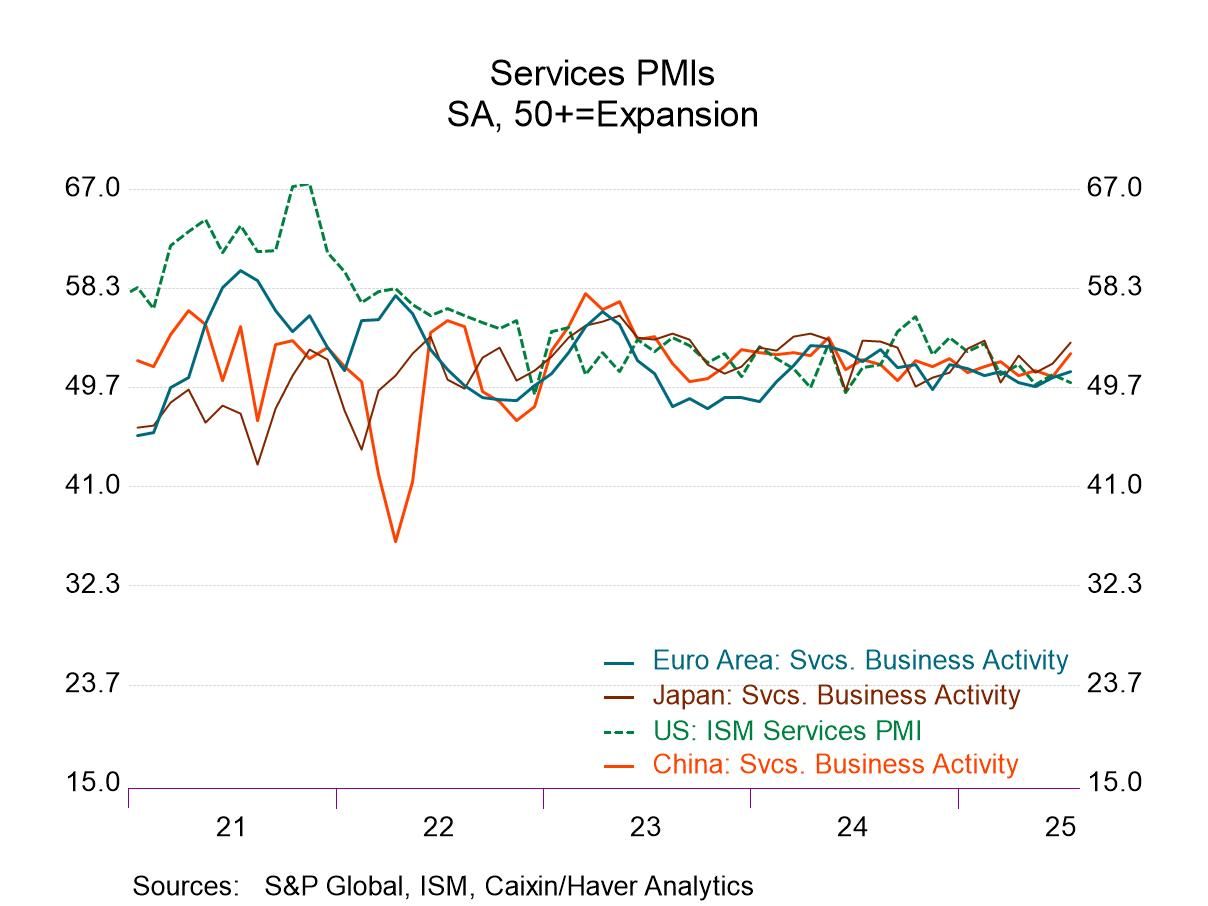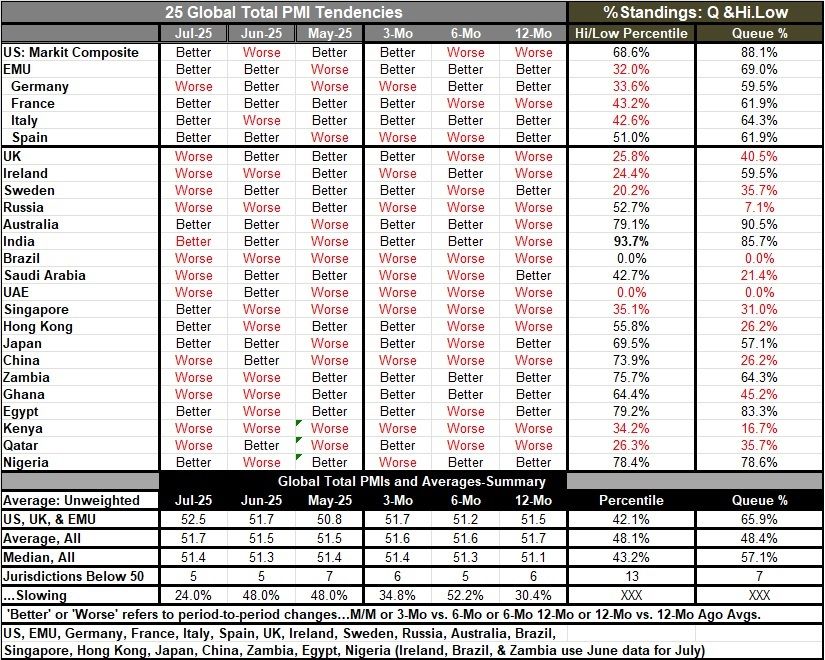 Global| Aug 05 2025
Global| Aug 05 2025Service Sectors Prop-up Global Economy

The S&P Global PMI indexes once again showed mixed performance in July. Most large economies continue to do better, and the total PMI services sectors continue to make up for shortcomings in manufacturing.
Stability on a low growth path In July, 24% of the reporting countries showed activity was slowing; that's down from 48% in both June and May and indicates some progress. Only five of the reporting jurisdictions have PMI values below 50 indicating economic contraction in July; that July figure compares to five in June and seven in May. Declining activity continues to be an unusual event. Medians and average readings for the group of 25 countries or regions show extreme stability in the recent months as well as across sequential averages.
Growth moderately improves Comparing period averages from 12-months to six-months to three-months, unweighted readings of the U.S., the U.K., and European monetary union show extremely flat PMI values oscillating between values of 51.2 to 51.7 on those period averages; over three months, six months, and 12 months. The jurisdictions in the table show PMI readings below 50 are rare; once again declining activity is an unusual event. The proportion of reporters slowing over three months is 34.8% compared to 52.2% over six months and 30.4% over 12 months. Once again, we see these statistics tilted toward improving growth rather than towards slowing
Summing up The queue percentile standings for the group in July have an average value at 48.4% which is below the 50% mark that coincides with the median for the period. This tells us the growth is largely worse than what its median has been over the past 4 1/2 years. On a queue ranking basis, the largest economies consistently perform better with readings above the 50% mark for the U.S. and for the European Monetary System including each of its four largest EMU economies (Germany, France, Italy, and Spain). Japan has a queue standing in its 57th percentile. However, China’s percentile standing is in its 26th percentile and the U.K. is at its 40.5 percentile. Not all large economies are in the catbird seat, but most are faring well despite the moderate growth track globally.

Robert Brusca
AuthorMore in Author Profile »Robert A. Brusca is Chief Economist of Fact and Opinion Economics, a consulting firm he founded in Manhattan. He has been an economist on Wall Street for over 25 years. He has visited central banking and large institutional clients in over 30 countries in his career as an economist. Mr. Brusca was a Divisional Research Chief at the Federal Reserve Bank of NY (Chief of the International Financial markets Division), a Fed Watcher at Irving Trust and Chief Economist at Nikko Securities International. He is widely quoted and appears in various media. Mr. Brusca holds an MA and Ph.D. in economics from Michigan State University and a BA in Economics from the University of Michigan. His research pursues his strong interests in non aligned policy economics as well as international economics. FAO Economics’ research targets investors to assist them in making better investment decisions in stocks, bonds and in a variety of international assets. The company does not manage money and has no conflicts in giving economic advice.
More Economy in Brief
 Global| Feb 05 2026
Global| Feb 05 2026Charts of the Week: Balanced Policy, Resilient Data and AI Narratives
by:Andrew Cates






